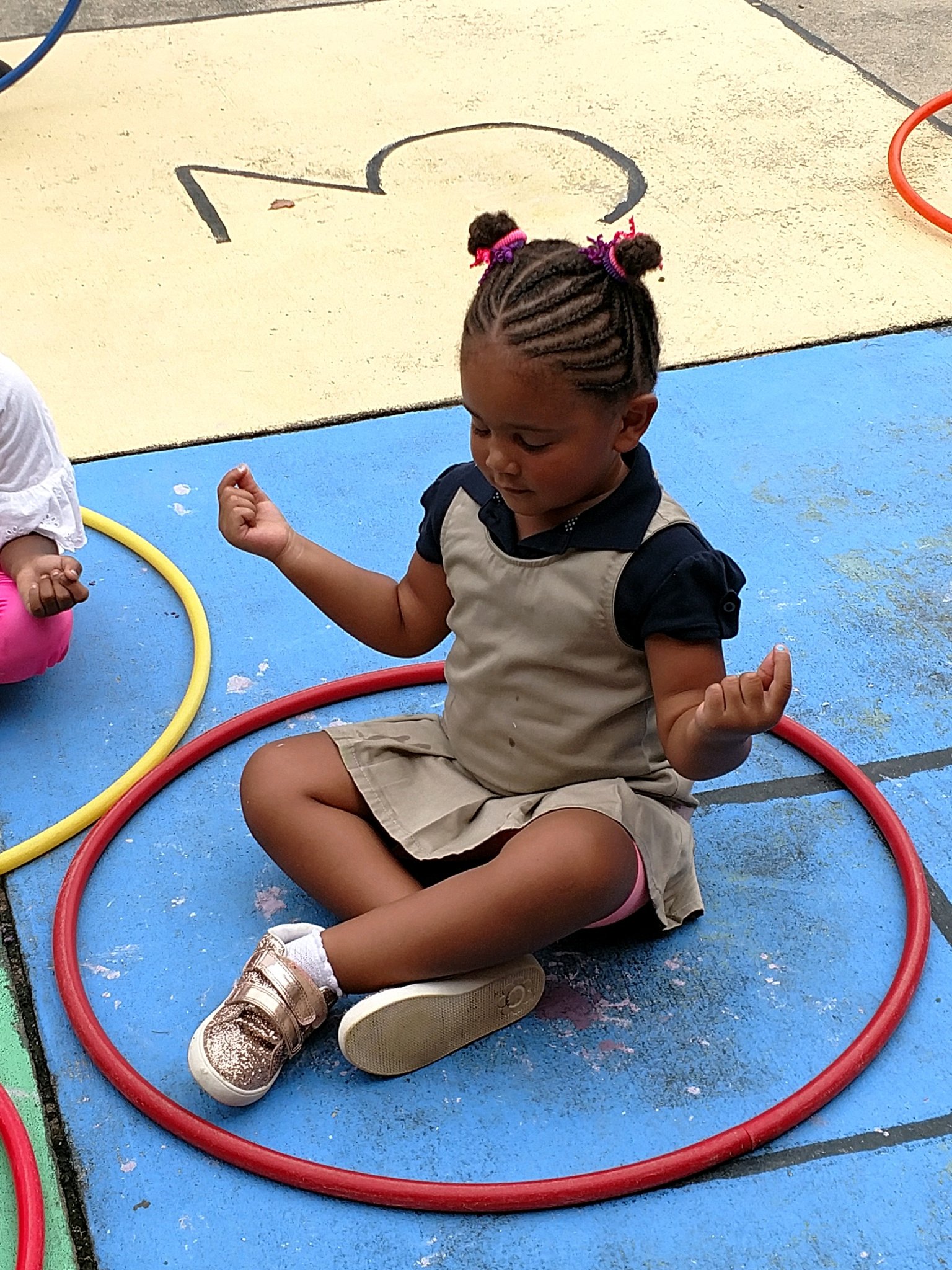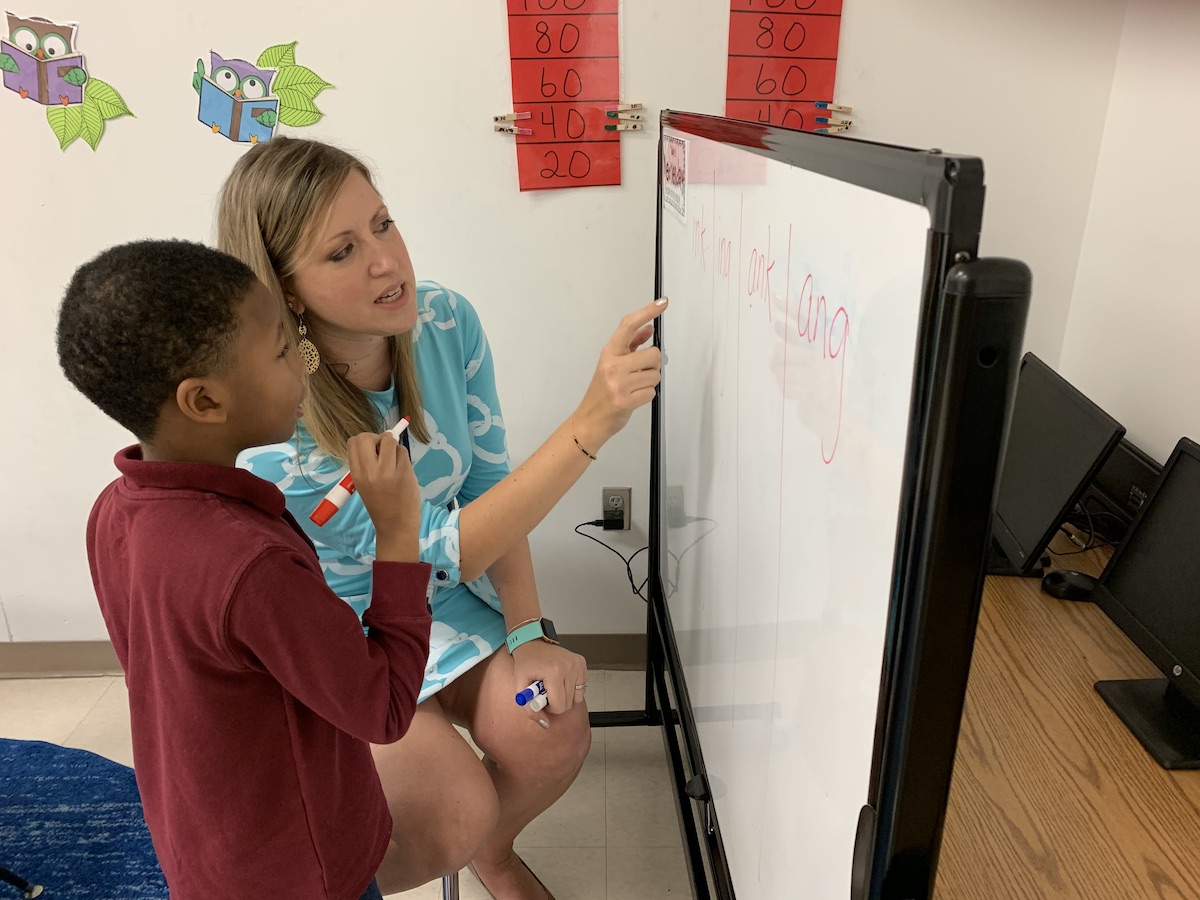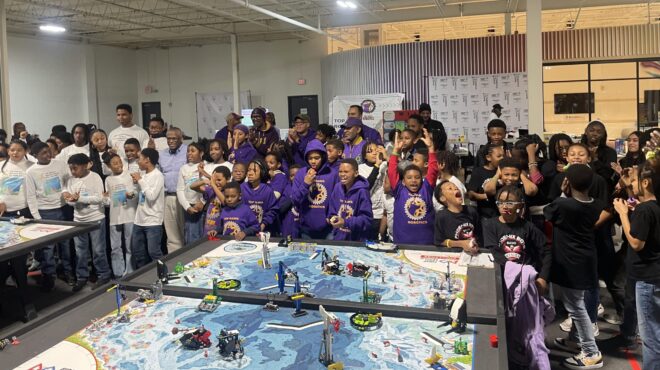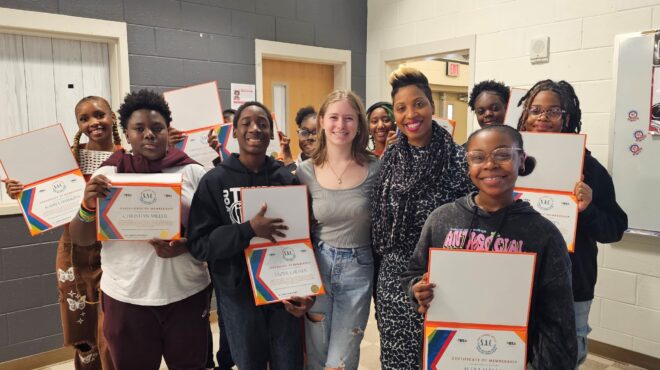When a student at Price Middle School was having trouble forming relationships with her peers, one of her teachers suspected she may benefit from counseling and made a referral to the school’s CHRIS 180 therapist.
A victim of bullying, this student found herself acting out by bullying others. Her suicidal thoughts–one of her deepest held secrets–were becoming too heavy to manage on her own.
After several months in individual and group counseling sessions at school with her CHRIS 180 therapist, she experienced dramatic, positive improvements. Her relationships with peers improved, and her teachers and therapists witnessed her self-esteem and positive self-talk grow.
 CHRIS 180 is a non-profit organization providing school-based mental health services in metro Atlanta. Each Purpose Built School receives onsite counseling services, skill training, consultation and coaching to school staff and trauma-informed care training for staff.
CHRIS 180 is a non-profit organization providing school-based mental health services in metro Atlanta. Each Purpose Built School receives onsite counseling services, skill training, consultation and coaching to school staff and trauma-informed care training for staff.
Purpose Built Schools is proud to partner with CHRIS 180 to bring these necessary services to Thomasville Heights Elementary School, Slater Elementary School, Price Middle School and Carver STEAM Academy. Without these services, many students wouldn’t have access to mental wellness and support.
“It’s possible to take for granted the levels of trauma that children experience,” says Melissa Robinson Graves, LMFT, director of school-based services, CHRIS 180. “Adults can take a day off, but kids don’t get that allowance. They have to go to school every day even after experiencing extreme trauma. Our staff does a great job giving these kids space to process and heal.”
At each school, CHRIS 180 provides a therapist and behavioral specialist to work with students by referral. Behavioral specialists work with students on their behaviors in the classroom. Typically, a student will be referred because of disruptive behavior in the classroom, such as violence, temper tantrums, or difficulty getting along with peers.
CHRIS 180 therapists work with students to understand the “why” behind their actions. When students have experienced trauma or violence, therapists work with them to improve mental wellness and begin healing.
“Children that have experienced trauma tend to react more intensely to day-to-day stressors,” says Graves. “The school-based staff work with students to help them in the moment, but we don’t do this work in a vacuum. We partner with teachers and parents to offer training and coaching so they can continue to support the student long term. Teachers go to school to learn how to teach, not how to manage behavior problems in their classrooms. We want them to focus on what they do best, so we asked, how can we help?”
CHRIS 180 provides monthly trauma-based care training to staff and teachers at THES, Slater, Price and Carver STEAM. Teachers find it useful to talk with therapists one-on-one and gain support in how to manage behaviors in their classrooms.
“As a parent, I didn’t understand the challenges teachers face in managing their classrooms,” says Graves. “I’m really proud of our training program and how we equip teachers to discover new skills and tools to manage behaviors so that students can thrive.”
Since the COVID-19 school closures, CHRIS 180 has shifted to a telehealth model to provide services to Purpose Built Schools students. Instead of in-person sessions, CHRIS 180 therapists and behavioral specialists speak with students by phone and video conference.
Before the pandemic, one of the initial barriers to students receiving services was getting parents to come in person and provide consent. But with new social-distancing and shelter-in-place orders, the state has lessened restrictions so that CHRIS 180 only needs verbal consents from parents, which has been much easier to attain while students are home. Since the closures, they have been able to enroll new students.
“I wish this was available in all schools,” says Graves. “As a culture, especially in underserved and minority communities, we don’t talk enough about mental wellness. But the more we talk about it, the more we normalize it. Hopefully our work today will make it so that in the future our students can recognize when they need help instead of holding it in.”
“The changes take time, but we’re changing kids’ lives,” says Graves.









